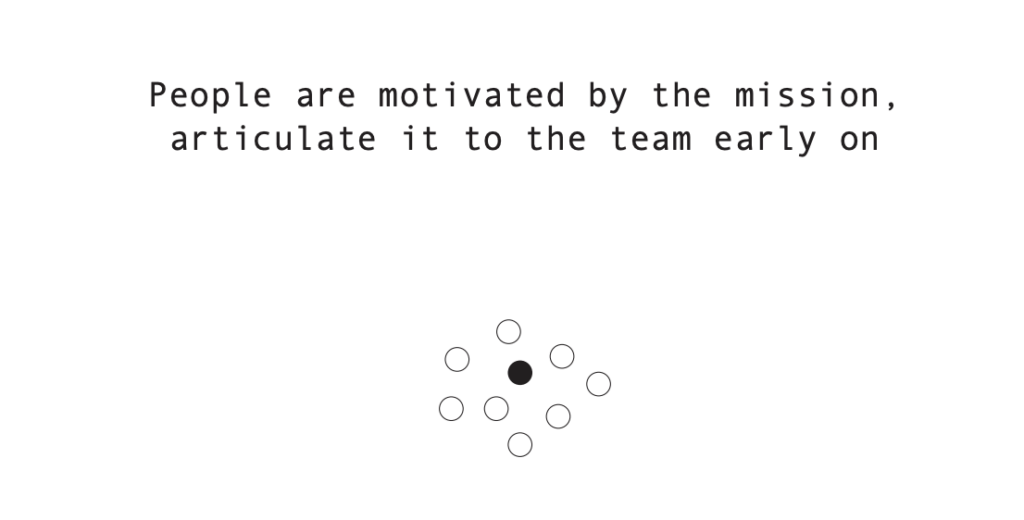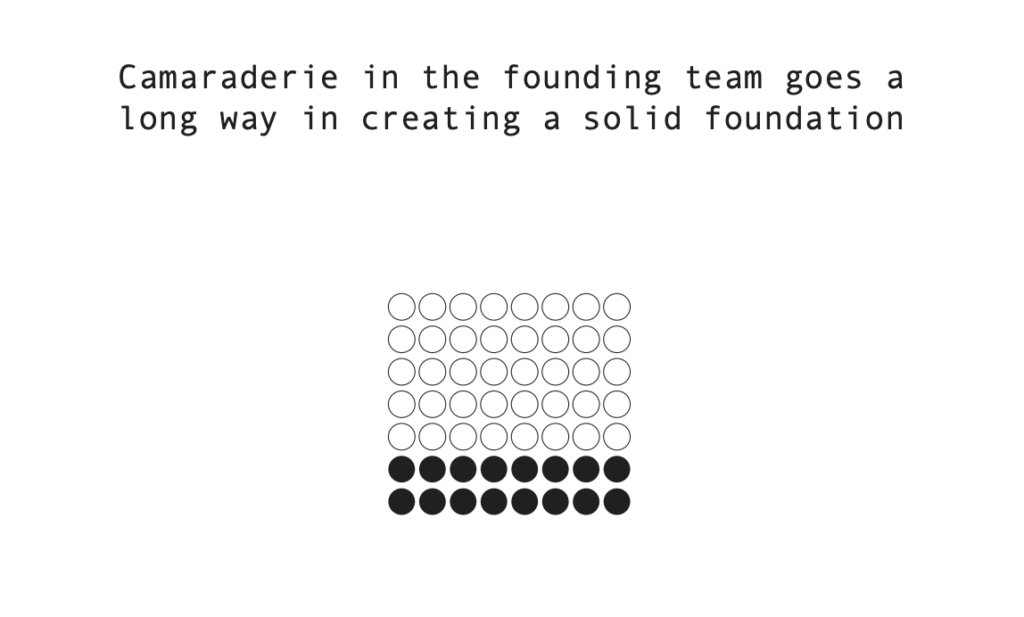Making the first few hires is almost like recruiting for a moon mission, except that there’s no spaceship or any guarantee that you will actually land on the moon. As we have seen in many startup journeys, the pivots are unpredictable, and the destinations keep moving as founders keep discovering new market realities and navigating unforeseen crises. The only thing common between a space mission and a startup journey is the number of micro-events and innumerable tiny things that determine the fate of a startup. And early hires are just one of those many pieces of the grand jigsaw. What makes these missions even more complex is that at different life stages of a startup, you need different exit velocities to shift the orbits, meaning a different talent mix for achieving goals across 0 to $1 million, $10 million, $100 million, $1 billion and beyond. So who will you hire first—an engineer, a sales executive, a designer, or a product manager? To answer this question with real examples that offer timeless lessons, we are bringing conversations with the founders and asking them about their first hires and whether they would follow the same playbook if they were to build the startups again.
MONISH DARDA
One of the learnings we took from our personal and our entrepreneurial experience is building a team from top-down instead of bottom-up. Bottom-up is also good at some point, but you think about building a team top-down, especially at the beginning. That actually makes it very interesting because you end up hiring the right leaders. Then you can scale much faster because you are delegating a lot of that stuff that you need to focus on when you are smaller and create more bandwidth. Of course, you have to have the revenue to back it up because leaders are expensive and senior people are expensive, but that separates good founders and great leaders. Finding the right people at the right cost and making sure options are exciting! If you have such a thought process from the beginning, the right kind of network combined

with the right option pool and value proposition, it is possible. That’s what we did. I think in the early stages, we did it very well.
RITESH ARORA
The first team we started hiring was engineering because we got so much feedback from the customers that we needed to improve a lot upon the features that we had already built. We went for engineers first. We hired a designer; the early hirings were very flexible people. So, our first hire was an engineer, but he was a full-stack engineer, you could ask him to solve any problem across the engineering stack, and he would do it. The second guy was a designer-cumweb-developer and a content writer. He was very good at English. He used to write the content, he used to design, and also implement it on the front end. The first four/ five hires should be generalists as much as possible. Then, when the workload increases, you transition their roles and start specializing. The next batch of specializations for us were back-end engineers and front-end engineers. Then we wanted to do dedicated design work. That’s how we scaled. We didn’t have support in the beginning. so Nakul and I used to take turns doing support till three or four in the morning every day, since most of our users were in the US, North America. Then we hired the first support guy, the second support guy, the third support guy, etc.
ANEESH REDDY
Culturally, I would still go to friends, being an Indian, and I will tell you why—I have seen some of my best friends give me the strongest negative feedback. Culturally as Indians we are not tuned to giving negative feedback to someone; even if it is a colleague
CULTURALLY AS INDIANS WE ARE NOT TUNED TO GIVING NEGATIVE FEEDBACK TO SOMEONE; EVEN IF IT IS A COLLEAGUE OF YOURS. RARELY DO YOU GIVE NEGATIVE FEEDBACK, YOU RARELY FIND PEOPLE WHO DO THAT, AND IF YOU ARE GOOD FRIENDS, THEN THAT BARRIER IS A LITTLE LOWER TO GIVE FEEDBACK.
— ANEESH REDDY

of yours. Rarely do you give negative feedback, you rarely find people who do that, and if you are good friends, then that barrier is a little lower to give feedback. It is a very Indian thing. When I look at all the startups I have invested in—there are about 45 now—I have seen a very strong correlation between the founders knowing each other earlier and being more successful. Whereas two new people coming together, I have generally not seen those firms do well. It is a very Indian thing I guess. Although you form an old boys’ school in the company, as Indians, we are not good at giving feedback to someone we don’t know.
MONISH DARDA
In the first few years, you are always hiring in your network. You are just comfortable with that core, and as a founder, you want people you have worked with before, or you know about, or somebody has recommended very strongly, and so on. A lot of your initial hiring is cherry-picking. Once you start hiring people you don’t know personally, your values become critical. We have always had this values conversation upfront and centre. Saying that these are our values, what do you think about them? First of all, does it make sense, and if it makes sense, can you give me examples of how you would react in tough situations? These conversations have allowed us to actually get people who think like us. You could argue that it’s not necessarily a good thing and makes diversity in thinking difficult. But thinking the same way when it matters is so important for growth! So, we would fight and become friends immediately since we were already aligned on what was important. How do I keep politics in a growing organization to a minimum? How do I make it more efficient and more open? You know, some companies have done it really well, but it’s an incredibly hard thing to do. While hiring, when you are establishing this values baseline, that makes a big difference.
ONCE YOU START HIRING PEOPLE YOU DON’T KNOW PERSONALLY, YOUR VALUES BECOME CRITICAL. WE HAVE ALWAYS HAD THIS VALUES CONVERSATION UPFRONT AND CENTRE. SAYING THAT THESE ARE OUR VALUES, WHAT DO YOU THINK ABOUT THEM? THESE CONVERSATIONS HAVE ALLOWED US TO ACTUALLY GET PEOPLE WHO THINK LIKE US. YOU COULD ARGUE THAT IT’S NOT NECESSARILY A GOOD THING AND MAKES DIVERSITY IN THINKING DIFFICULT. BUT THINKING THE SAME WAY WHEN IT MATTERS IS SO IMPORTANT FOR GROWTH!
— MONISH DARDA
